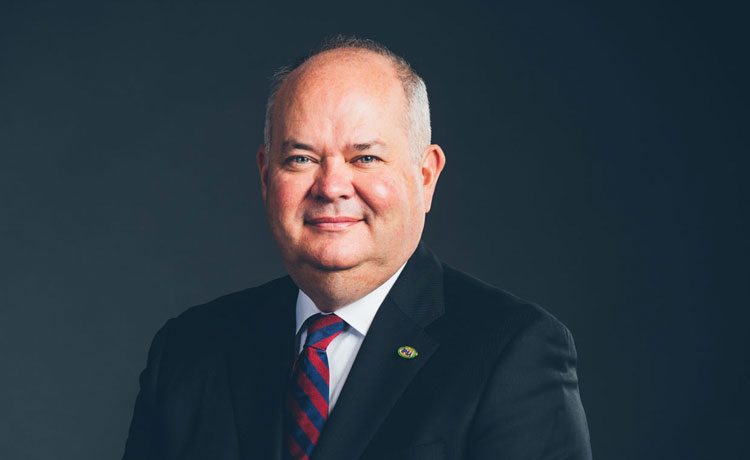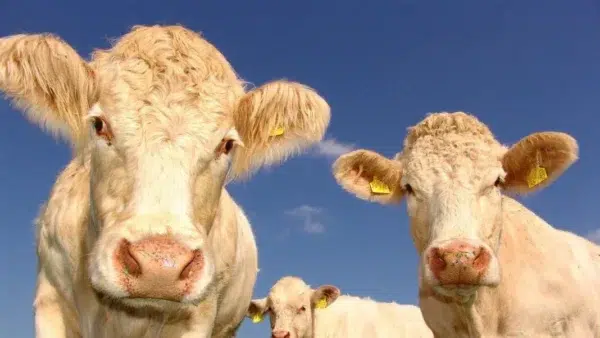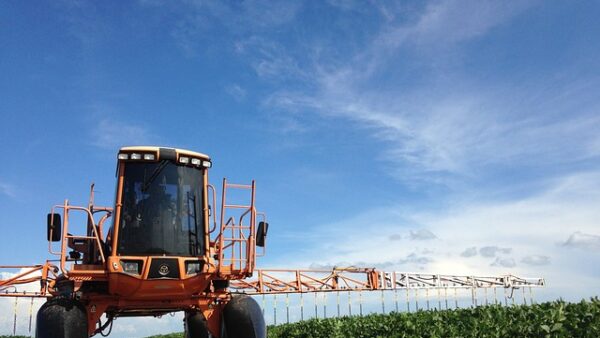At the helm of this association since early 2015, this busy veteran agribusinessman continues to assure that its members not only survive, but thrive in the seed industry.
Celebrating its 30th anniversary next year in 2019, the Independent Professional Seed Association has seen many changes over the past three decades as it navigated its way through the ebbs and flows of the seed industry. And while change in inevitable, IPSA’s stance has remained constant: to promote the interests and capability of independently-owned companies.
At the helm of IPSA’s ship since early 2015, Todd Martin is ensuring that its members not only survive, but thrive in this competitive industry with its increasing consolidation, regulation, and technology.
A veteran agribusinessman, Martin — who took over the reins from Greg Ruehle — may have seemed, on the surface, to be an unlikely choice largely because he had no association management experience. However, those who know him say he is just the right person for this job.
Martin came to IPSA from Syngenta where he has worked since 1990 in various sales, marketing, business development and global traits roles.
“Todd is a savvy, intuitive leader always on the look-out for win-wins,” says John Dombrosky, CEO of AgTech Accelerator, and a former business partner of Martin.
“When working with Todd on business development projects, mergers and acquisitions, or licensing deals, I always felt more confident we could succeed. He brings energy, passion and acumen to deals and third-party interactions.”
Adds IPSA Past President Randy Wilken of ProHarvest Seeds in Ashkum, Ill., “Todd’s long background in the seed industry has brought a new perspective and renewed energy to the organization. He’s ramped up member visits to understand their needs and what keeps them up at night. He’s always asking ‘what if?’ and forcing people to think about things that might not be seemingly apparent.”
Achievements and Challenges
Born and raised in Arkansas, Martin earned a Bachelor of Science degree in agriculture business from the University of Arkansas at Fayetteville in the mid-1980s.
When asked about IPSA’s main activities over the past year, Martin says the board has been diligently working to help seed companies become more sustainable and to develop their business, especially in this era of ag consolidation. He cites three main challenges the industry is facing.
“First, underlying commodity price pressure and the farm economy is affecting the seed companies,” he says. “Secondly, AG consolidation with big multinational companies coming together, and AG retailers coming together is putting more pressure on seed prices. This is affecting the economics of the independent seed producer and seller. And, thirdly, there are outside organizations that are trying to be disruptors in the marketplace.”
When asked what can be done to overcome these challenges, he says, “Our companies endure the ag economy, just like the farmers. It is outside of our control. However, independent seed companies have always been fast to move and able to adjust quickly to changing market conditions. That is definitely a strength.”
Additionally, he says the prevalence of licensing of traits and genetics, the differentiation in product offers and seed quality drive the competition that independent companies bring to customers.
“It is one of the big reasons that independents continue to grow and thrive in the marketplace. Make no mistake — seed is not a commodity business. Farmers see the products that they need and want at competitive prices because there are independent seed companies in the market place. Organizations that would discount the value created by something like seed quality clearly don’t understand the seed business.”
Martin adds that another positive is that the seed industry is going to see more innovation.
“I think some of the promising technologies like CRISPR may help more competition in breeding programs. We could see the rise of new breeding programs at the independent level and that means we may really be able to do significant things from that perspective.”
When speaking about IPSA’s achievements, Martin is very proud of the research the association has conducted over the past decade—and continues to do. IPSA has managed a competitive research program that helps members evaluate seed treatments and seed enhancement with research locations on member and third-party sites across the country. And, while this may not be new, he is striving to make it even better.
“We are taking the time to look at what we can do differently to make it more valuable for members and participating companies,” he explains. “We’re looking to pull out a more robust data set and help companies in their decision-making process. Can they find something that works better than what they are currently using? Can they find something that is more economical than what they are using, but just as good? These are the types of questions we are asking to shape the research program moving forward.”
Scholarships remain a big part of IPSA as it continues its efforts to attract young people to the industry. Martin says the efforts of the education committee have really paid off — especially in the last few years under Committee Chair Shane Ohide.
For instance, the association went from receiving just 10 scholarship applications a couple of years ago to more than 180 applications in 2017.
“We went from giving $1,500 in scholarships to giving $10,000 in scholarships this year,” Martin says, noting that he hopes to be able to continue to grow the program to a $20,000 level in the coming years.
“It’s exciting to see younger generations really becoming part of the seed industry,” he continues. “We see this as part of our continuing education platform. We have younger generations coming into these family operations and not just working in the warehouse, but becoming part of the management teams. It is paramount for us to help train, promote, sponsor and educate the next generation.”
What’s Next?
When asked what the association’s goals going forward in the near future, Martin simply responds that it’s the same thing it has always been.
“To help develop a marketplace for independent seed companies so they have a sustainable business and to help them grow and operate more efficiently, and to promote independent seed companies as a viable option in the marketplace. It is our objective to provide networking for companies. That is really our focus.”












